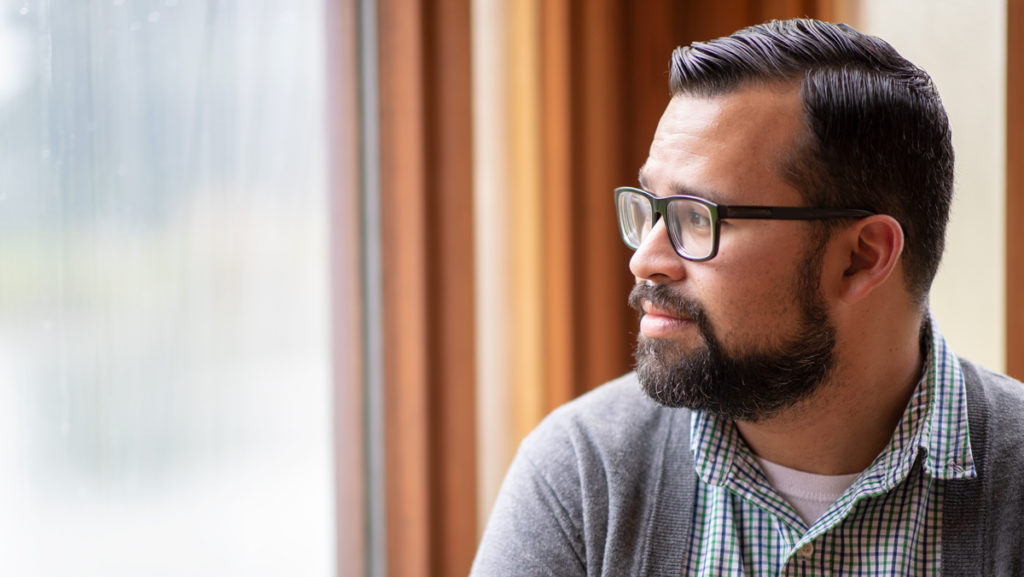In the last thirty days, I have had the honor of listening to students, faculty, and staff share their stories and their hopes. Such listening is a core component of my vision for the Office of Religious and Spiritual Life: to create opportunities for the IC community to make meaning, find belonging, engage in dialogue, and collaborate across commitments for action.
Anyone who has ever had a disagreement with someone they care about knows that listening can be hard work. But the difficulty is worth bearing if we can foster conversation, the original meaning of which is “to live among, to be familiar with, to keep company.” Catholic scholar and activist Frances Kissling champions real and risky conversation, writing how it “points at the richness that civility might hold — an ideal that is ours to invent anew — as something full-blooded and muscular, more culture-shifting and reality-based than a choice between politeness and argument.”
The vulnerable space between politeness and argument has sometimes eluded the communities that work with the Office of Religious and Spiritual Life. When I meet with students, I hear the pain of exclusion and the frustration of unmet ideals. I hold that pain with the IC community, and I hold out a promise to you: We are building something better. Our department wants to put flesh and muscle on the best of what our faiths and philosophies teach. Will you join us?
Will you join us for our fall series, Oct. 8, Nov. 5, and Dec. 6, about how to respond as people of conscience to the crises resulting from this nation’s immigration policies?
Will you join us for dialogue between LGBTQ people of faith, discerning how to draw strength from traditions that are still learning how to embrace them? We can begin the conversation on Oct. 10 as I share my own story of finding belonging as a queer Latinx person of faith.
Will you join a diverse coalition of students — those with a faith tradition, those without one, those whose beliefs are well-represented, those whose beliefs are thriving on the margins — to engage the pluralistic world we call home?
Change is already in the works. I am reaching out to other colleges for advice and counsel to help us develop policies for accountability and transparency when religious leaders and faith communities want to be a part of our campus life. I am building a budget from the ground up to redistribute resources equitably among a broad group of constituencies, setting aside funds for projects that inspire interfaith collaboration and lead our community into the brave space between politeness and argument.
I am especially grateful for the good work of Facilities Services, who are helping remake Muller Chapel into a more welcoming space. I can’t wait to show you one of the meeting rooms we are updating that will serve all students, regardless of faith tradition, as a place for dialogue, collaboration, and action.
I am excited for where we are heading, and I invite you to be a collaborator with me in this work. We have a lot to do, but I am confident that with you we can author the story of a diverse, inclusive and hospitable community. Will you join me in living into our vision?














